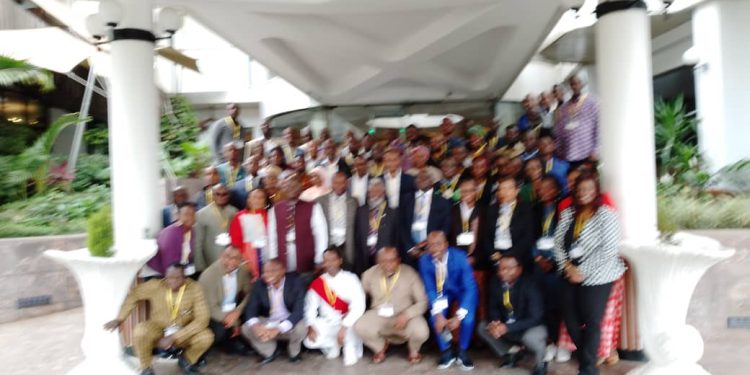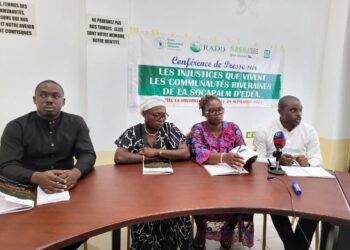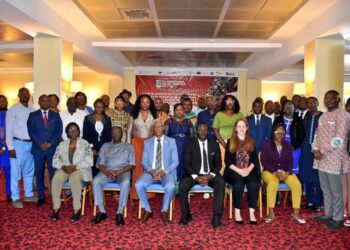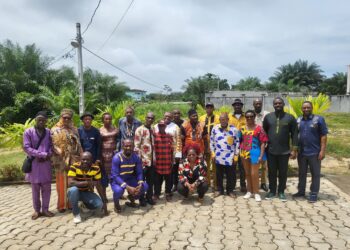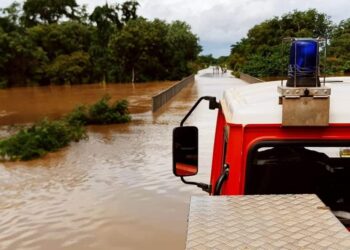By Elias Ngalame
Climate change is one of the major current environmental challenges in Africa in particular and the world at large experts say. According to Dr Joshua Cheboiwo, Chief Research Officer, Director KEFRI, there is growing evidence that climate change is impacting on forests and forest ecosystems in Africa, and therefore on the livelihoods of forest dependent communities as well as on national economic activities that depend on forest and tree products and services.
«There is thus need for innovative solutions for climate and ecosystem smart forest management» Dr Cheboiwo said at a regional workshop organised by African Forest Forum.
The workshop taking place in Nairobi-Kenya July 3-7, 2023 is holding under the theme «Forest and Tree-based ecosystems services for socio-ecological resilence to climate change in Africa»
Experts at the workshop emphasised on the role of ecosystem services, as a concrete, innovative, sustainable solution that can strengthen Africa’s climate efforts.
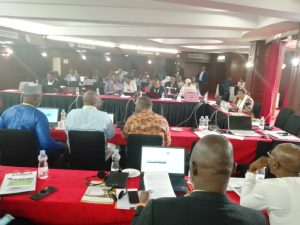
Accordingly, ecosystem services procedure and the supporting business model is an effective market-based instrument.
He described ecosystem services as benefits that people obtain from nature highlighting that forests have many positive effects on society, such as stable clean water supplies, productive soil, and carbon sequestration.
According to AFF executive secretary, Professor Godwin Kowero, the population of Africa expected to rise to 2.5 billion by 2050 and a projected demand for industrial wood estimated to grow from about 75 million m3/per year in 2020 to 250 million m3 per year by 2030. Consequently the strain on the African forests and trees outside forests has to be carefully managed, especially in the context of increasing deforestation and forest degradation on the continent that are increasingly been made worse by adverse effects of climate change.
«These resources consist of a myriad of different tree species, good for timber and other building materials, as well as abundance of non-timber forest products (NTFPs), thus offering the resources the capacity to serve the people on the continent with many products to meet their many and varied demands» Prof Kowero said.
One good way such demands could be met is largely through adding value on the resources through processing. This forward linkage to primary forest production is critical to Africa’s development, and especially so when the population is rising rapidly, urbanization is accelerating very rapidly, he added .
According to experts, ecosystem services demonstrate, and promote the beneficial effects of responsible forest management practices.
«There is need to increase commercial value for people that sustainably manage forests and take steps to conserve forest ecosystem,» says Ben Chikamai, Executive Secretary at Network for Natural Gums and Resins in Africa, NGARA, Kenya.
Experts from different countries presented the business case for ecosystem services in some African countries illustrating how the innovation has been used to restore the capacity of watersheds, transformation on nontimber forest products, processing of timber through investments in sawmills and sawn wood etc.
Ecosystems services experts say are potentially beneficial to forest actors if sustainably managed.
«Without ecosystem services, there is no water» said Dalington Duwa.
He said mounting data evidence and practical ground experience demonstrate that certified forest concessions are essential sanctuaries for biodiversity and ecosystem services, adding that the management of forests in Africa calls for a new economic paradigm.
The shifts in rainfall patterns and temperature changes can result into increased water scarcity and severe prolonged droughts that in turn directly affect agricultural production, food and nutritional security, as well as markets and trade potential of forest dependent population.
In this regard, climate change and variability continue to create serious challenges to the sustainability of biophysical and socio-economic systems on the continent, according to AFF.
The continued erosion of such systems is slowing down socio-economic development and jeopardizing the environmental stability of most of the African countries, especially in their efforts to achieve the Sustainable Development Goals and Africa Agenda 2063, among other national and regional development aspirations.
According to Professor Kowero,
«Africa shall be a continent where the free movement of people, capital, goods and services will result in significant increases in trade and investments amongst African countries rising to unprecedented levels, and strengthen Africa’s place in global trade».
Given these developments, the potential for the forestry sector to contribute to the aspirations of both Agenda 2063 and AfCFTA, needs to be addressed, especially given the already noted considerable exchanges of forest products among African countries, albeit most of them being traded informally.
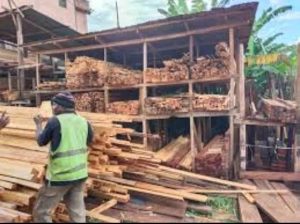
This scenario he adds, compels the African continent to undertake a serious introspection of its forestry sector, possibly guided by questions like, how to meet the wood products needs of its growing population, how not to continue relying on imports for the ever-increasing demand for wood products.
«The intention is to change Africa into a relatively wood products self-sufficient continent, thus saving considerable foreign currency spent on importing similar products; savings that can be spent on other important domestic needs without recourse to expensive international capital markets.»
